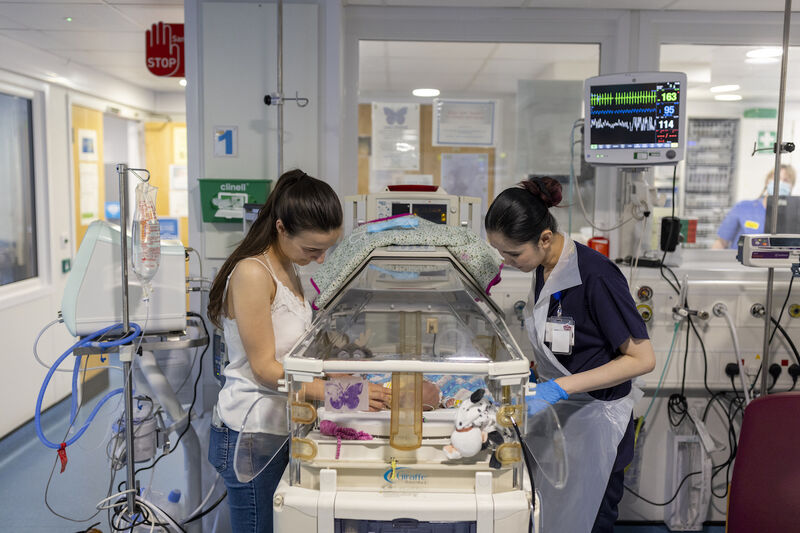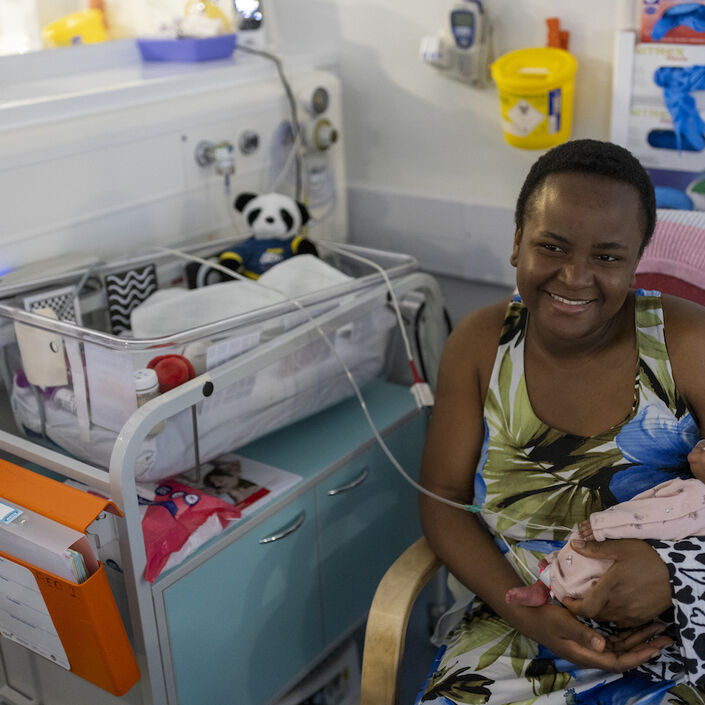What is non-verbal communication?
Non-verbal communication is the transmission of messages or signals through a non-verbal platform such as eye contact, facial expressions, gestures, posture, and body language.
What do parents say about non-verbal communication?
Non-verbal communication was identified as a very important aspect of communication in the neonatal environment by parents on our Parent Advisory Group (PAG). Many parents spend a lot of their time on the unit watching staff members, oftentimes looking for visual cues that may provide information about their baby’s condition.
Some parents in our group highlighted that they noticed when staff are visibly frustrated. Shrugging, eye-rolling, head-shaking are examples of body language that parents notice, even if these actions are not directed towards the parent.
Parents in one of our focus groups noted that non-verbal communication can be even more difficult to read while staff are wearing face masks. This impacts their confidence while being on the unit and can sometimes discourage them from speaking up about their baby.
Sometimes non-verbal communication is problematic when it does not appear to match verbal communication. When staff are talking to parents, parents are observing their facial expressions and body language. If they feel this does not match what is being said, they can become worried. For some this is because it can feel like they are not getting all the information available about their baby.
Parents can fear the worst, reading into non-verbal communication as a sign of bad news. One parent in our group reflected on her experience watching a nurse return after taking a blood gas test, hanging on any clue in their body language that would indicate what they did not want to hear.
Non-verbal communication can also be a very positive way of communicating with parents. Several parents in our group noted that small gestures such as smiling, nodding and waving helped them feel acknowledged and listened to while on the unit. Oftentimes, this helped to empower them to be involved in their baby’s care and to ask questions.
How do parents communicate without using words?
The other aspect of non-verbal communication to be aware of is parents’ non-verbal communication. When words are difficult, as is often the case during traumatic experiences on the neonatal unit, non-verbal communication can serve as an indicator that a parent needs support.
It is important that staff are aware of signs that a parent may be struggling and know how to appropriately support the parent.
Non-verbal communication and FICare
It is, therefore, critical that neonatal staff are aware of their non-verbal communication when on the unit so that parents feel as comfortable as possible when with their baby. Many parents noted that effective verbal communication can mitigate problems with non-verbal communication.
The Bliss FICare pilot project has looked at ways in which non-verbal communication can be best managed in the neonatal environment. Subsequently, Luton and Dunstable Hospital, our trial unit, have included training around non-verbal communication in their FICare training package delivered to staff.

